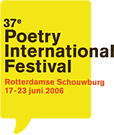Poet
|
Sergej Gandlevski 1952-... country: Russia language: Belarussian |
began writing poetry at age eighteen. Until the late 1980s he published his work only in Russian-language periodicals appearing outside the Soviet Union. He teaches contemporary Russian poetry and produces literary programmes for Russian radio. Sergey Gandlevsky (Moscow, 1952) studied Russian language and literature at Moscow State University and started publishing in Russian emigré journals, but since the collapse of the Soviet Union his poems have appeared in all leading Russian periodicals. In 1991 he joined the Russian writers’ association. Gandlevsky has produced a series of literary programmes for Russian radio and lecture cycles for universities. He is editor of the journal Foreign Literature and lives in Moscow. Gandlevsky has published four collections of poems, stories, a novel, essays and reviews. He has received several awards for his poetry as well as his prose publications. Vladislav Kulakov writes in Poetry as Fact (1999): ‘The poets of the ‘Moscow Time’ group roughly continue the line of the (Akhmatovian) neo-akhmeists of the 1960s, who wanted to create their own ‘tough style’ [...]. Yet, undeniably, certain aesthetic accents have shifted, due, in fact, to essential changes in artistic thinking. In my opinion, the clearest example of this trend is the work of Sergey Gandlevsky. The aesthetic purism which polemized with the inevitable utility principle of official Soviet poetry, has been substituted by a poetic language which opens itself to the new ‘prose’, the prose of Soviet life, which the ‘tough style’ poets [...] had usually avoided. [...] Post-war childhood in an inner courtyard, the brutal reality of a communal dwelling ‘within the four walls of Moscow’s alcoholism’: one might have argued that Gandlevsky describes everyday life, had he not provided it with a frighteningly obvious ontological basis. Intellectual deprivation [...] is no longer an impediment to high-minded poetry, but a powerful catalyst. [...] Gandlevsky writes in his own language, the language of his own time, which one is no more free to choose than one’s homeland, or one’s parents.’ Author: Hans Boland Translated by Ko Kooman The Tale (1989); Celebration (1995); Poetic Cuisine (1998); Summary (1999); Word Order (2000); Twenty-Nine Poems (2001); Finding a Hunter (2002). Poets: |


